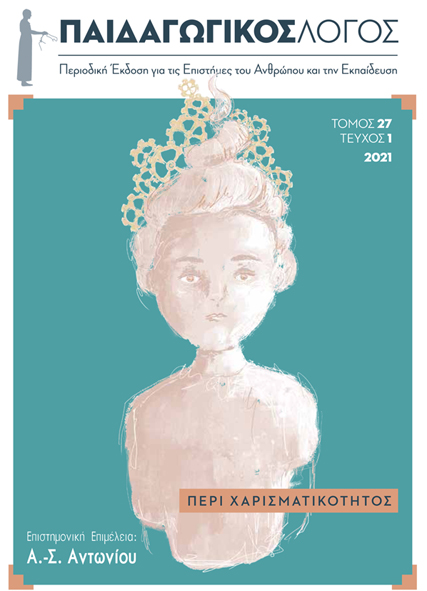Educational strategies for gifted children: a comparative study in Australia, Hungary, Russia and Greece

Abstract
Greek experts, teachers and the gifted children’s parents are highly concerned about the teaching methods that are employed for the gifted students’ education. The aim of this article is to provide a comparative presentation of the educational strategies adopted in Hungary, Russia, Australia and Greece. In this way, we will be in position to look into the teaching methods that are deployed for the gifted children’s education in countries with a long tradition on this issue, with the ultimate goal of examining the prospects for the development of such strategies in our country. Hungary has already made relevant provisions for gifted students through its public education system since 1980.Russia is a country that for more than half a century promotes support schemes for gifted students, especially in science, while Australia is regarded as a pioneer in the educational strategies for gifted children. Finally, in Greece, various efforts are made in relation to the gifted children’s evaluation as well as education, which, nevertheless, are still at an early stage and depend primarily on private initiatives.
Article Details
- How to Cite
-
Παππά Μ., & Αντωνίου Α.-Σ. (2021). Educational strategies for gifted children: a comparative study in Australia, Hungary, Russia and Greece. Pedagogikos Logos, 27(1), 83–100. https://doi.org/10.12681/plogos.27917
- Section
- Articles

This work is licensed under a Creative Commons Attribution-NonCommercial-NoDerivatives 4.0 International License.
Οι Συγγραφείς που δημοσιεύουν εργασίες τους σε αυτό το περιοδικό συμφωνούν στους παρακάτω όρους:
- Οι Συγγραφείς διατηρούν τα Πνευματικά Δικαιώματα και χορηγούν στο περιοδικό το δικαίωμα της πρώτης δημοσίευσης, ενώ ταυτόχρονα τα πνευματικά δικαιώματα της εργασίας προστατεύονται σύμφωνα με την χρήση άδειας που υιοθετεί ο «Παιδαγωγικός Λόγος - Περιοδική Έκδοση για τις Επιστήμες του Ανθρώπου και την Εκπαίδευση» : Αναφορά Δημιουργού – Μη Εμπορική Χρήση – Όχι Παράγωγα Έργα 4.0 (CC BY-NC-ND). Αυτή η άδεια επιτρέπει στους άλλους να έχουν πρόσβαση στο έργο και να το μοιράζονται με άλλους, εφόσον κάνουν αναφορά σε αυτό, ωστόσο δεν μπορούν να το αλλάξουν με κανένα τρόπο ούτε να το χρησιμοποιούν για εμπορική χρήση.
- Οι συγγραφείς μπορούν να συνάπτουν ξεχωριστές και πρόσθετες συμβάσεις και συμφωνίες για τη μη αποκλειστική διανομή της εργασίας, όπως δημοσιεύτηκε στο περιοδικό αυτό (π.χ. κατάθεση σε ένα ακαδημαϊκό καταθετήριο ή δημοσίευση σε ένα βιβλίο), με την προϋπόθεση της αναγνώρισης και την αναφοράς της πρώτης δημοσίευσης σε αυτό το περιοδικό.
- Το περιοδικό επιτρέπει και ενθαρρύνει τους συγγραφείς να καταθέτουν τις εργασίες τους μέσω διαδικτύου (π.χ. σε ένα ακαδημαϊκό καταθετήριο ή στους προσωπικές τους ιστοσελίδες) πριν και μετά από τις διαδικασίες της δημοσίευσης, καθώς αυτό μπορεί να οδηγήσει σε παραγωγική ανταλλαγή ιδεών και σκέψεων, καθώς επίσης και σε γρηγορότερη και μεγαλύτερη χρήση και ευρετηρίαση της δημοσιευμένης εργασίας


